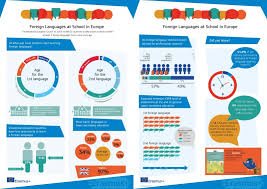
Language learning is a key focus in Europe, where multilingual education strategies are widely implemented. Q: What is the importance of multilingual education in Europe? A: Multilingual education is vital for fostering communication and understanding in a culturally diverse continent, enhancing social cohesion and mobility.
Q: How are early language immersion programs used in European schools? A: Early language immersion programs introduce children to new languages at a young age, promoting fluency and cognitive development.

Q: What role do Content and Language Integrated Learning (CLIL) programs play? A: CLIL programs integrate language learning with subject matter teaching, allowing students to acquire language skills while learning academic content.
Q: How does the Common European Framework of Reference for Languages (CEFR) support language learning? A: The CEFR provides a standardized framework for assessing and teaching languages, ensuring consistent language education across Europe.

Q: What are some challenges of multilingual education in Europe? A: Challenges include varying levels of language teacher proficiency, resource availability, and balancing language learning with other academic demands.
| Strategy | Description | Impact on Language Learning |
|---|---|---|
| Multilingual Education Importance | Fosters communication and social cohesion | Enhances cultural understanding and mobility |
| Early Language Immersion Programs | Introduces languages to children at a young age | Promotes fluency and cognitive development |
| Content and Language Integrated Learning (CLIL) | Combines language learning with subject teaching | Facilitates language acquisition through academic content |
| Common European Framework of Reference for Languages (CEFR) | Standardized framework for language assessment and teaching | Ensures consistent and effective language education across Europe |
| Multilingual Education Challenges | Teacher proficiency, resource availability, academic balance | Requires addressing teacher training and resource allocation |

These multilingual education strategies reflect Europe’s commitment to fostering a multilingual populace, preparing students for a globalized world while addressing inherent challenges.